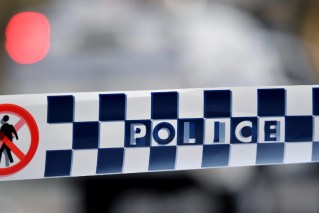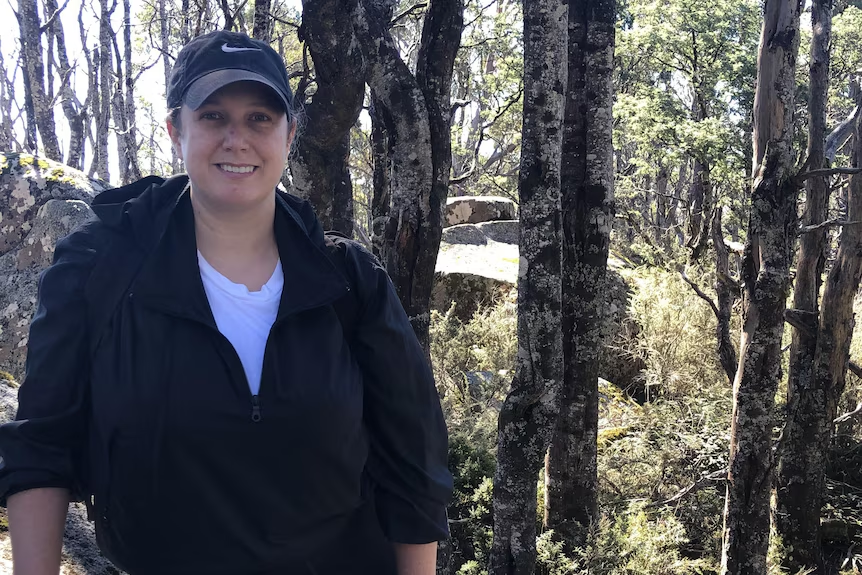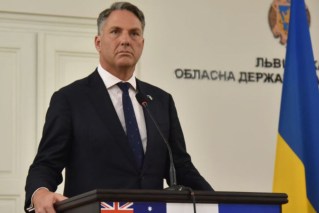Murder and torture allegations against elite soldiers in Afghanistan have been described as more “evil” and “worse” than the atrocities at Abu Ghraib prison, prompting cries for urgent cultural change within the Australian army.
A former defence department secretary says Australia should re-evaluate its use of special forces troops and even how it enters foreign conflicts at all.
Bombshell allegations of gruesome war crimes have been levelled against 25 special forces troops over the murder of 39 people including prisoners, farmers and civilians – all unarmed, many injured or taken prisoner.

General Angus Campbell on Thursday. Photo: AAP
The report of the Inspector-General of the Australian Defence Force says soldiers should be referred to federal police for further investigation.
“Today the Australian Defence Force is rightly held to account,” defence force chief Angus Campbell said in Canberra on Thursday.
A further report from Dr Samantha Crompvoets, included inside the wider IGADF report, details allegations from army whistleblowers that special forces troops would have “body count competitions”, including capturing men and boys inside Afghan villages.
The claims included that prisoners “would be tied up and tortured by Special Forces, sometimes for days”, then shot dead or have their throats slit.
“‘Guys just had this blood lust. Psychos,” one soldier said, according to the report.
My statement on today's distressing report by the Inspector-General of the Australian Defence Force into actions by Australian personnel in Afghanistan. pic.twitter.com/zSN7qarZAH
— Office of Kevin Rudd, 26th PM of Australia (@MrKRudd) November 19, 2020
Kevin Rudd, who was prime minister during part of the time examined by the Brereton report, said he was “utterly disgusted” by the “flagrant violations” of international law.
“It beggars belief that following the atrocities witnessed during the Iraq War at Abu Ghraib that such crimes could be repeated, and worse, by Australian forces in Afghanistan,” he said in a statement.

Mr Rudd said he was “disgusted”. Photo: AAP
Mr Rudd said the ADF had an “urgent responsibility” to reform its culture.
James Brown, former president of RSL NSW, told Sky News on Thursday the allegations were “evil” and compared the actions to atrocities committed by Japanese soldiers in World War II.
Special forces rethink needed
Paul Barratt AO was secretary of the federal Defence department from 1998-99. He claimed special forces troops had been used too often by Australia’s military, and that the Brereton report was evidence this should change.
“We’ve got into a situation now where the answer to every military problem is seen as special forces,” Mr Barratt told The New Daily.
“I suspect our military leaders have become accustomed to offering special forces. It’s seen as a response to a domestic political imperative of not having too many casualties.”

Former head of the Defence department Paul Barratt. Photo: AAP
The Brereton report makes that very point, recommending “Special Forces should not be treated as the default ‘force of first choice’ for expeditionary deployments, except for irregular and unconventional operations”.
Mr Barratt said previous reviews of wars involving Australia had made similar assessments, that governments had leant toward committing smaller groups of specialised soldiers instead of larger groups.
“That was the thinking in 2003 in Iraq, that the government didn’t want to commit a battalion to conventional warfare because we might end up with a level of casualties that makes the war unpopular at home,” he said.
“Where that leads us is that government shouldn’t be let off the hook here. We can’t understand how this happened unless we understand how we got into the war in Iraq and the invasion of Afghanistan.”
Mr Barratt is currently president of Australians for War Powers Reform, an organisation pushing for changes to how Australia commits troops to foreign conflicts – specifically, that Parliament should be able to vote on the decision, not just the executive making a unilateral decision.
He said he hoped the IGADF’s findings would give future politicians more pause before sending soldiers into battle.
“I hope we’d take more sober deliberation about what wars we commit to,” Mr Barratt said.

The IGADF report made claims of possible war crimes in Afghanistan. Photo: AAP
“We’ve seen people rotated through Afghanistan up to 10 times … people have lost their way about what they’re doing, and if you want to win this war at all, like in Vietnam, you’ve got to win the hearts and minds of the people.
“If you’re casual about who you kill, you’ve got an extended family that hates you.”
The report also calls for special forces members to get more time off between deployments, commenting that special forces cycling between six tours of duty was not uncommon.
‘Presumption of innocence’
The Law Council of Australia called the report’s allegations “abhorrent”, and backed last week’s establishment of a special investigator to further probe the allegations.
Law Council President, Pauline Wright, response to reports of war crimes by SAS officers @thelawcouncil #auspol pic.twitter.com/oHiMb0dw1Q
— Political Alert (@political_alert) November 19, 2020
“The government has an obligation to deal with the allegations in a timely way; however, the investigation process must be thorough and fair – not only for the victims of the alleged crimes but also for the people being investigated,” Law Council president Pauline Wright said.
“This investigation team will need to be adequately resourced to achieve this.
“Whether any of the soldiers referred for investigation have committed war crimes has not been determined, and they are entitled to the presumption of innocence. The question of their guilt or innocence can only be determined by a court.”
Defence Minister Linda Reynolds promised “accountability will be the cornerstone of Defence’s response”.
“This is crucial to maintaining the highest standards Australians expect of our military, reassuring confidence and trust, and learning from grave failings,” she said after the report’s release.
Senator Reynolds said the new Afghanistan Inquiry Implementation Oversight Panel would report to her regularly.
General Campbell is expected to update the government at least every three months on the army’s progress in responding to the recommendations.
“I remain proud of the men and women of the ADF who have served our nation on operations at home and around the world, and have done so with distinction,” she said.









